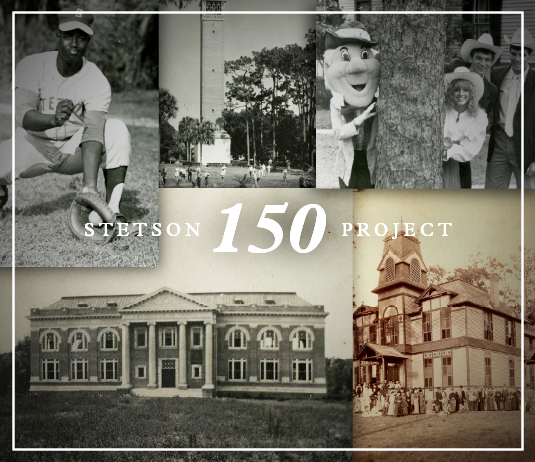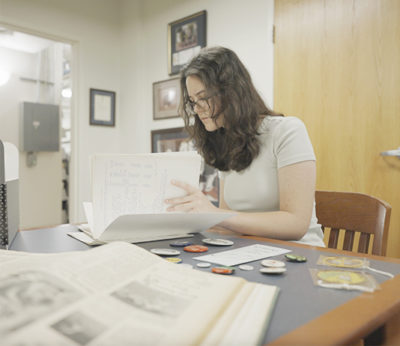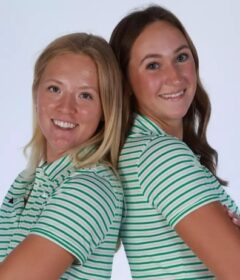Uncovering History for the Stetson 150 Project

Ever wondered why Stetson is the way it is? No need to look further than Stetson 150, the university’s newest project to research and commemorate Stetson’s unique and fascinating history in preparation for Stetson’s 150th anniversary.

Junior History majors Serena Dowling ’26 and Reagan Shivers ’26 began the project at the beginning of the Spring ’25 semester with the help of History Professors Mayhill Fowler, PhD, and Kimberly Reiter, PhD.
The Stetson 150 project seeks to explore an ever-expanding collection of themes that represent Stetson’s history, including those like gender, race and world affairs. Students taking Stetson 150 as an Independent Study (ISY) course are encouraged to interact with Stetson’s history through individual archival research, conducting oral history interviews, recording podcasts and more.
Serena Dowling spent the spring semester conducting oral history interviews with three Stetson community members who witnessed campus in the 1960s as both students and faculty members. The interviewees revealed interesting perspectives of Stetson in the 60s, reflecting on student and faculty life for women and the ways that campus developed with technology. Dowling worked with Olena Kolupayeva, PhD, assistant professor of practice in Journalism, her Journalism Studio students and WHAT Radio to record the interviews and create podcast episodes reflecting on each interview.

“Conducting the oral histories really showed me how memory affects the history that we learn,” said Dowling. “It was interesting to see what stuck out to them during their time as students and see how it compares to the written history.”
Reagan Shivers conducted archival research exploring the effects of the Vietnam War on Stetson’s campus. She found that in 1969, Stetson students convinced the administration to cancel classes for a day of protest called Peace Day. Shivers utilized both the Stetson digital archives and the physical archives in the library basement with the help of Stetson Archivist Beth Maycumber.
“I really enjoyed getting to see the physical documents from the 60s and be able to interpret them,” said Shivers. “It was exciting to search the archives and sort of create my own research path.”
After one semester of work, Stetson 150 produced four podcasts about their findings. Each podcast contains the interesting information found during research and wraps it all up into a short conversation about the broader themes of Stetson history. Stetson 150 is an ongoing project open to all students regardless of major. Podcasts are only the start—at the end of the project, Stetson 150 aims to be a vast resource for all things Stetson history.
-Reagan Shivers ’26
The Stetson 150 Project is part of the University’s Hatter Ready program that provides immersive, hands-on experiences for students, including research, internships and study abroad, to prepare them for successful careers after graduation.



